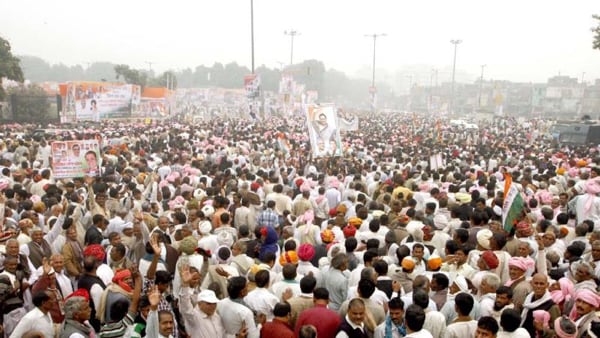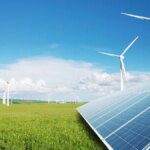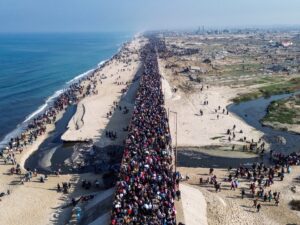French President Emmanuel Macron described the European Union’s remaining energy imports from Russia as “very marginal,” countering former President Donald Trump’s calls for the bloc to further reduce its reliance on Russian energy to enable the U.S. to exert more pressure on Moscow regarding the war in Ukraine.
“This is not a key driver today,” Macron stated in an interview on CBS’s Face the Nation. “We’ve decreased our consumption of oil and gas by more than 80%.”
Last week, President Joe Biden emphasized the need for European allies to halt Russian oil purchases, indicating that he might consider implementing additional measures against Russia, “but not when the people that I’m fighting for are buying oil from Russia.”
Among the proposals originating from the U.S. is the consideration of imposing secondary tariffs of up to 100% on goods imported from China, India, and other countries, along with trade restrictions aimed at limiting the flow of Russian energy and the transfer of dual-use technologies to Russia.
Although the EU has collectively reduced its energy imports from Russia since President Vladimir Putin’s large-scale invasion of Ukraine in 2022, some member states remain heavily reliant on Russian energy. Slovakia and Hungary have expressed their intention to resist pressures from Trump to halt Russian oil imports until the EU identifies viable alternatives.
The EU has enacted a ban that will take effect next year, prohibiting the importation of petroleum products refined from Russian crude, and discussions are underway to prohibit imports of Russian liquefied natural gas by 2027.
When asked about his stance on further sanctions or tariffs against Russia, Macron noted, “it doesn’t just depend on me.” He added, “If it depends just on me, tomorrow.”
As discussions gain traction in Europe regarding the use of frozen Russian assets to finance Ukraine, Macron approached the issue with caution. “Regarding the frozen assets, we are all very much attached to being compliant with international rules,” he remarked. “You cannot seize these assets from the central bank even in such a situation.”
Most of the approximately $300 billion in frozen Russian assets are held in Europe. European Commission President Ursula von der Leyen recently suggested that these cash balances could potentially serve as a source for providing Ukraine with a “reparations loan.”










